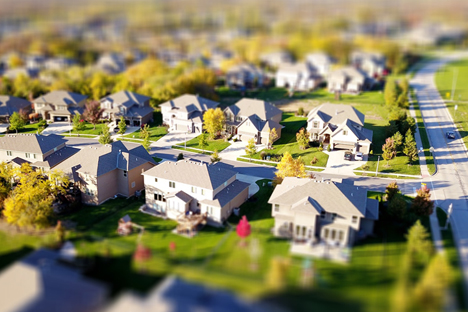What is racism?
“Racism is a system of dominance, power, and privilege based on the belief that one racial group is better than others” (Harrell, 2000) Even though there is no biological basis for race, racism causes real biological harms, which these web pages describe.
“Racism is rooted in the historical oppression of people defined by the dominant group as inferior, deviant, or undesirable”(Harrell, 2000). Racism manifests in different ways across the globe. In the U.S., racism is rooted in our nation’s history of genocide and slavery. The social construct of race is powerful in part because white supremacists, white nationalists, and other groups actively work to maintain the racial hierarchy. These racist attitudes have infiltrated our laws and policies and, for centuries, unfairly diminished social and physical environments for BIPOC (Black, Indigenous, and people of color) communities (Jones 2002, Krieger et al., 1993) and kept power and privilege in the hands of white people and institutions (Harrell 2000, Wyatt 2003).
“The dominant group creates its own societal privilege by maintaining structures, ideology, values, and behavior that exclude nondominant-group members from power, esteem, status, and/or equal access to society’s resources” (Harrell, 2000). In other words, racism is produced and reproduced in our social structures, institutions, interpersonal interactions, and the culture surrounding us.
Racism is pervasive in society. It is experienced across one’s lifetime, causes chronic stress, and intersects with other systems of oppression, such as sexism, heterosexism, and ableism. The result has been an unfair and sustained assault on the health of Black, Indigenous, and other people of color.
Why we created this website:
Racism is rooted in our country’s founding but is still present in our social systems, like education, food, labor, housing, and healthcare. Where we live determines the type and conditions of our work, the kinds of foods we have access to, and whether communities are targeted by law enforcement and punitive sentencing.
We can unknowingly reinforce racial hierarchies just by interacting with those systems. That’s why we are actively working to dismantle racism in our own institution at Berkeley Public Health. The following pages provide evidence to help public health scientists and community members answer the question “How is racism operating here?” (Jones, 2002), and how is racism affecting health? We share seminal work and the latest research documenting how racism manifests within and across vital social institutions, including education, healthcare, housing, and neighborhood conditions, and the criminal legal system. We also describe the implications for population health and health inequities. We hope that this information will spark reflection and conversation and inspire action.
We want to thank the many students and faculty who developed the content on these pages and the web developers who brought that content to the web format.
Sources cited on this page:
- Harrell SP. (2000) A multidimensional conceptualization of racism-related stress: implications for the well-being of people of color. The American journal of orthopsychiatry. 70: 42-57. https://psycnet.apa.org/record/2000-13882-005.
- Jones, C. P. (2002). Confronting institutionalized racism. Phylon (1960-), 50(1-2): 7-22. https://doi.org/10.2307/4149999.
- Krieger N, Rowley DL, Herman AA, Avery B, Phillips MT. Racism, Sexism, and Social Class: Implications for Studies of Health, Disease, and Well-being. American Journal of Preventive Medicine, Volume 9, Issue 6, Supplement, November–December 1993, Pages 82-122. https://doi.org/10.1016/S0749-3797(18)30666-4
- Wyatt SB, Williams DR, Calvin R, Henderson FC, Walker ER, Winters K. Racism and cardiovascular disease in African Americans. Am J Med Sci. 2003 Jun;325(6):315-31. https://pubmed.ncbi.nlm.nih.gov/12811228/
Other studies on racism and health:
- Alang, S., Hardeman, R., Karbeah, J. M., Akosionu, O., McGuire, C., Abdi, H., & McAlpine, D. (2021). White Supremacy and the Core Functions of Public Health. American Journal of Public Health, 111(5): 815-819. https://www.ncbi.nlm.nih.gov/pmc/articles/PMC8033999/.
- American Cancer Society. Breast Cancer Facts & Figures 2019-2020. Atlanta: American Cancer Society, Inc. 2019. https://www.cancer.org/content/dam/cancer-org/research/cancer-facts-and-statistics/breast-cancer-facts-and-figures/breast-cancer-facts-and-figures-2019-2020.pdf.
- American Public Health Association. (2018). Addressing Law Enforcement Violence as a Public Health Issue [Policy Report]. https://www.apha.org/policies-and-advocacy/public-health-policy-statements/policy-database/2019/01/29/law-enforcement-violence
- Bassett MT, Chen JT, Krieger N. Variation in racial/ethnic disparities in COVID-19 mortality by age in the United States: a cross-sectional study. PLoS Med. 2020;17(10):e1003402. https://doi.org/10.1371/journal.pmed.1003402
- Beckie, T. M. (2012). A systematic review of allostatic load, health, and health disparities. Biological research for nursing, 14(4), 311-346. https://journals.sagepub.com/doi/10.1177/1099800412455688.
- Benjamin, E. J., Muntner, P., Alonso, A., Bittencourt, M. S., Callaway, C. W., Carson, A. P., Chamberlain, A. M., Chang, A. R., Cheng, S., Das, S. R., Delling, F. N., Djousse, L., Elkind, M. S. V., Ferguson, J. F., Fornage, M., Jordan, L. C., Khan, S. S., Kissela, B. M., Knutson, K. L.et al. On behalf of the American Heart Association Council on Epidemiology and Prevention Statistics Committee and Stroke Statistics Subcommittee. (2019). Heart Disease and Stroke Statistics—2019 Update: A Report From the American Heart Association. Circulation, 139(10): e56-e528. https://doi.org/10.1161/CIR.0000000000000659
- Chen, J.T.; Krieger, N. Revealing the Unequal Burden of COVID-19 by Income, Race/Ethnicity, and Household Crowding. J. Public Heal. Manag. 27(Suppl. 1): S43-S56. https://journals.lww.com/jphmp/Fulltext/2021/01001/Revealing_the_Unequal_Burden_of_COVID_19_by.8.aspx.
- Chen, J., & Krieger, N. (2020). Revealing the unequal burden of COVID-19 by income, race/ethnicity, and household crowding: US county vs ZIP code analyses. Harvard Center for Population and Development Studies Working Paper Series, 19(1). https://www.hsph.harvard.edu/population-development/wp-content/uploads/sites/2623/2020/06/HCPDS_Volume-19_No_1_20_covid19_RevealingUnequalBurden_HCPDSWorkingPaper_04212020_with-addendum_5_28_2020.pdf.
- Chen JT, Waterman PD, Krieger N. COVID-19 and the unequal surge in mortality rates in Massachusetts, by city/town and ZIP Code measures of poverty, household crowding, race/ethnicity, and racialized economic segregation. Harvard Center for Population and Development Studies Working Paper Series, Volume 19, Number 2. May 9, 2020. https://www.hsph.harvard.edu/population-development/research/working-papers/harvard-pop-centerworking-paper-series/
- Chin, T., Kahn, R., Li, R., Chen, J. T., Krieger, N., Buckee, C. O., Balsari, S., & Kiang, M. V. (2020). US county-level characteristics to inform equitable COVID-19 response. https://www.medrxiv.org/content/10.1101/2020.04.08.20058248v1.
- Clark R, Anderson NB, Clark VR, Williams DR. (1999) Racism as a stressor for African Americans. A biopsychosocial model. Am Psychol. 54: 805-16. https://psycnet.apa.org/record/1999-11644-001.
- Cogburn CD. (2019) Culture, race, and health: implications for racial inequities and population health. The Milbank Quarterly. 97: 736-61. https://www.ncbi.nlm.nih.gov/pmc/articles/PMC6739606/.
- DeSantis CE, Ma J, Gaudet MM, et al. (2019) Breast cancer statistics, 2019. CA: A Cancer Journal for Clinicians. 69(6): 438-451. https://acsjournals.onlinelibrary.wiley.com/doi/10.3322/caac.21583.
- DeSantis CE, Siegel RL, Sauer AG, et al. (2016) Cancer statistics for African Americans, 2016: progress and opportunities in reducing racial disparities. CA: a cancer journal for clinicians. 66: 290-308. https://acsjournals.onlinelibrary.wiley.com/doi/10.3322/caac.21340.
- Dunn, J. R., Veenstra, G., & Ross, N. (2006). Psychosocial and neo-material dimensions of SES and health revisited: Predictors of self-rated health in a Canadian national survey. Social Science & Medicine, 62(6), 1465-1473. https://www.sciencedirect.com/science/article/abs/pii/S0277953605004168.
- Edwards, F., Lee, H., & Esposito, M. (2019). Risk of being killed by police use of force in the United States by age, race–ethnicity, and sex. Proceedings of the National Academy of Sciences, 116(34), 16793-16798. https://www.ncbi.nlm.nih.gov/pmc/articles/PMC6708348/.
- Egede, L. E., & Walker, R. J. (2020). Structural Racism, Social Risk Factors, and Covid-19—A Dangerous Convergence for Black Americans. New England journal of medicine. 383(12): e77. https://www.ncbi.nlm.nih.gov/pmc/articles/PMC7747672/.
- Gee G, Hicken, M. (2021) Structural Racism: The Rules and Relations of Inequity. Ethnicity & Disease. 31(Suppl. 1): 293-300. https://www.ncbi.nlm.nih.gov/pmc/articles/PMC8143846/.
- Geronimus AT, Hicken M, Keene D, Bound J. (2006) “Weathering” and age patterns of allostatic load scores among blacks and whites in the United States. Am J Public Health. 96: 826-33. https://www.ncbi.nlm.nih.gov/pmc/articles/PMC1470581/.
- Glymour, M. Maria, Mauricio Avendano, and Ichiro Kawachi, ‘Socioeconomic Status and Health’, in Lisa F. Berkman, Ichiro Kawachi, and M. Maria Glymour (eds), Social Epidemiology, 2 edn (New York, 2014), https://doi.org/10.1093/med/9780195377903.003.0002.
- Holmes, L.; Enwere, M.; Williams, J.; Ogundele, B.; Chavan, P.; Piccoli, T.; Chinaka, C.; Comeaux, C.; Pelaez, L.; Okundaye, O.; et al. Black–White Risk Di_erentials in COVID-19 (SARS-COV2) Transmission, Mortality and Case Fatality in the United States: Translational Epidemiologic Perspective and Challenges. Int. J. Environ. Res. Public Heal. 2020, 17, 4322. https://www.mdpi.com/1660-4601/17/12/4322.
- James, E. H. (2000). Race-related differences in promotions and support: Underlying effects of human and social capital. Organization Science, 11(5), 493-508. https://pubsonline.informs.org/doi/epdf/10.1287/orsc.11.5.493.15202.
- Johns Hopkins Coronavirus Resource Center. Global Map. Available online: https://coronavirus.jhu.edu/map.html (accessed on 6 October 2020).
- Jones CP. (2000) Levels of racism: a theoretical framework and a gardener’s tale. American Journal of public health. 90: 1212. https://www.ncbi.nlm.nih.gov/pmc/articles/PMC1446334/.
- Jones, C. P. (2001, Aug 15). Invited commentary: “race,” racism, and the practice of epidemiology. Am J Epidemiol, 154(4), 299-304; discussion 305-296. https://academic.oup.com/aje/article/154/4/299/61900.
- Jones, D. S., Podolsky, S. H., & Greene, J. A. (2012). The burden of disease and the changing task of medicine. New England Journal of Medicine, 366(25), 2333-2338. https://www.nejm.org/doi/10.1056/NEJMp1113569.
- Krieger N. (2005) Embodiment: a conceptual glossary for epidemiology. Journal of Epidemiology & Community Health. 59: 350-5. https://jech.bmj.com/content/59/5/350.long.
- Krieger, N., Smith, K., Naishadham, D., Hartman, C., & Barbeau, E. M. (2005, Oct). Experiences of discrimination: validity and reliability of a self-report measure for population health research on racism and health. Soc Sci Med, 61(7), 1576-1596. https://doi.org/10.1016/j.socscimed.2005.03.006
- Lia Scott LM, Tzy-Mey Kuo, and Dora Il’yasova. (2019) Update on triple-negative breast cancer disparities for the United States – a population-based study from the United States Cancer Statistics database, 2010-2014. Cancer. 125(19): 3412-3417. https://acsjournals.onlinelibrary.wiley.com/doi/10.1002/cncr.32207.
- Mahajan, U. V., & Larkins-Pettigrew, M. (2020). Racial demographics and COVID-19 confirmed cases and deaths: a correlational analysis of 2886 US counties. Journal of Public Health. 42(3): 445-447. https://www.ncbi.nlm.nih.gov/pmc/articles/PMC7313814/.
- McEwen BS. (2000) Allostasis and allostatic load: implications for neuropsychopharmacology. Neuropsychopharmacology. 22: 108-24. https://www.nature.com/articles/1395453.
- Millett, G. A., Jones, A. T., Benkeser, D., Baral, S., Mercer, L., Beyrer, C., Honermann, B., Lankiewicz, E., Mena, L., & Crowley, J. S. (2020). Assessing differential impacts of COVID-19 on Black communities. Annals of Epidemiology. 47:37-44. https://www.sciencedirect.com/science/article/pii/S1047279720301769
- Nuru-Jeter, A. M., Michaels, E. K., Thomas, M. D., Reeves, A. N., Thorpe Jr, R. J., & LaVeist, T. A. (2018). Relative roles of race versus socioeconomic position in studies of health inequalities: a matter of interpretation. Annual review of public health, 39, 169-188. https://www.annualreviews.org/doi/abs/10.1146/annurev-publhealth-040617-014230.
- Nuru-Jeter A, Dominguez TP, Hammond WP, et al. (2009) “It’s the skin you’re in”: African-American women talk about their experiences of racism. an exploratory study to develop measures of racism for birth outcome studies. Matern Child Health J. 13(1): 29-39. https://www.ncbi.nlm.nih.gov/pmc/articles/PMC3051354/.
- Oppel, R.A.; Gebelho_, R.; Lai, K.K.R.; Wright,W.; Smith, M. The Fullest Look Yet at the Racial Inequity of Coronavirus. The New York Times, 5 July 2020. https://www.nytimes.com/interactive/2020/07/05/us/coronavirus-latinos-african-americans-cdc-data.html.
- Pickett, K. E., & Wilkinson, R. G. (2015). Income inequality and health: a causal review. Social science & medicine, 128: 316-326. https://www.sciencedirect.com/science/article/abs/pii/S0277953614008399.
- Riddell CA, Morrison KT, Kaufman JS, Harper S. Trends in the contribution of major causes of death to the black-white life expectancy gap by US state. Health & place. 2018;52:85-100. https://www.sciencedirect.com/science/article/abs/pii/S1353829217307153.
- Siegel, M., Critchfield-Jain, I., Boykin, M., & Owens, A. (2021). Actual Racial/Ethnic Disparities in COVID-19 Mortality for the Non-Hispanic Black Compared to Non-Hispanic White Population in 35 US States and Their Association with Structural Racism. Journal of Racial and Ethnic Health Disparities. 9(3): 886-898. https://www.ncbi.nlm.nih.gov/pmc/articles/PMC8077854/.
- The Covid Tracking Project. Racial Data Dashboard. 2020. Available online: https://covidtracking.com/race/dashboard (accessed on 25 May 2020).
- Virani SS, Alonso A, Aparicio HJ, et al. Heart disease and stroke statistics—2021 update: a report from the American Heart Association. Circulation. 2021;143(8):e254-e743. https://www.ahajournals.org/doi/full/10.1161/CIR.0000000000000950.
- Wilkinson, R. G., & Pickett, K. E. (2006). Income inequality and population health: a review and explanation of the evidence. Social science & medicine, 62(7), 1768-1784. https://www.sciencedirect.com/science/article/abs/pii/S0277953605004375.
- Williams DR. (1996) Race/ethnicity and socioeconomic status: measurement and methodological issues. International Journal of Health Services. 26: 483-505. https://doi.org/10.2190/U9QT-7B7Y-HQ15-JT14.
- Williams DR, Lawrence JA, Davis BA. (2019) Racism and health: evidence and needed research. Annual review of public health. 40: 105-25. https://www.ncbi.nlm.nih.gov/pmc/articles/PMC6532402/.
- Williams DR, Mohammed SA, Shields AE. (2016) Understanding and effectively addressing breast cancer in African American women: Unpacking the social context. Cancer. 122: 2138-49. https://acsjournals.onlinelibrary.wiley.com/doi/10.1002/cncr.29935.
- Williams DR, Yan Y, Jackson JS, Anderson NB. (1997) Racial Differences in Physical and Mental Health: Socio-economic Status, Stress and Discrimination. J Health Psychol. 2: 335-51. https://deepblue.lib.umich.edu/handle/2027.42/67159.
Racism, Neighborhoods, and Health Inequities
Where you live predicts lifelong health but structural racism determines who lives where, and the condition of those places, shaping health outcomes and health inequities.
Racism, The Healthcare System, and Health Inequities
the health care system encompasses access to care and the quality of that care, which together shape health.
Racism, Work, and Health Inequities
The type of work you do can predict lifelong health. Structural racism determines the conditions of work, shaping health outcomes and leading to health inequities.
Racism, Policing, and Health Inequities
Systemic racism embedded in policing has disproportionately harmed the health of Black and Brown people throughout their lifespans and across generations.
Racism, Food Systems, and Health Inequities
What people eat determines a variety of health outcomes and structural racism limits the type and quality of food people have access to, which creates racial health inequities.
Racism, Education, and Health Inequities
Education profoundly influences health throughout the lifespan. Yet structural racism shapes access to education, quality of education, and students’ daily experiences in schools.






